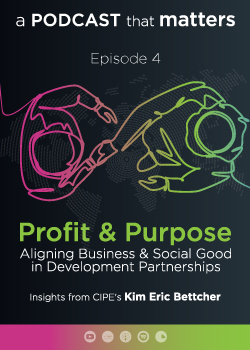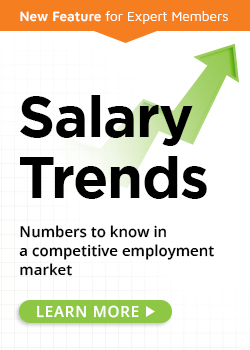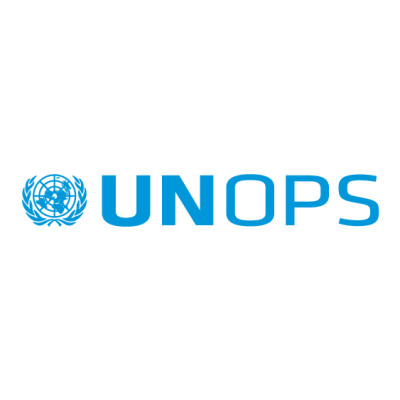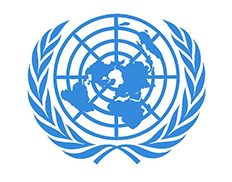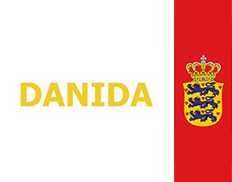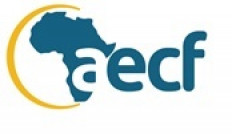
Terms of Reference for the Final Evaluation of the FIG Programme in Somalia – October 2023
Details
Description
Request for Proposal: Terms of Reference (TOR) for the final evaluation of the FIG programme in Somalia – October 2023
Job Title: Request for Proposal: Terms of Reference (TOR) for the final evaluation of the FIG programme in Somalia – October 2023
Closing date: 20/10/2023
- About the AECF
The Africa Enterprise Challenge Fund (AECF) transforms lives by providing investment funding and technical assistance to commercially viable businesses that improve the lives of rural communities. It mobilizes donor funding to support early and growth-stage businesses in agriculture and renewable and clean energy sectors, with a focus on improving incomes and employment for rural and marginalized groups. It is a non-profit organization, with its headquarters in Nairobi and operational centers in Somalia, Ethiopia, Dar-es-Salaam, Mozambique, Nigeria, South Sudan, and Côte d’Ivoire.
Since our launch in 2008 at the World Economic Forum, AECF has built the resilience of rural and marginalized communities by catalyzing innovative private sector business models with patient capital and growth support services across Sub-Saharan Africa.
- About the FIG Programme
The Finance for Inclusive Growth (FIG) programme implementation started in September 2020 and runs to March 2024 with the objective to revitalize and expand the local economy through livelihood enhancement, job creation, and broad-based inclusive growth for Somali women, youth, and producers. The programme was funded by European Union and implemented by African Enterprise Challenge Fund (AECF) in partnership with two Somali financial institutions (FIs), MicroDahab MFI and IBS Bank. The programme’s activities included designing and offering appropriate and sustainable financial products and services to clients, catalyzing sustainable lending to economic actors, building the capacity of the partner FIs to provide appropriate financial services for a wider scope of customers, and building the capacity of targeted end clients to profitably use the financing for business growth.
The programme objective is to revitalize and expand the local economy with a focus on livelihood enhancement, job creation and broad-based inclusive growth for Somali women, youth, and producers through:
- Designing and offering appropriate and sustainable financial products and services to clients through two Somali Financial Institutions (FI) and ensuring targeted clients are growing and becoming more bankable.
- Catalyzing sustainable increase in lending to economic actors in Somalia, esp. youth, women, and producers.
- Building the capacity of the partner financial institutions to increasingly provide appropriate financial services for a wider scope of customers living in urban centers, and rural and decentralized areas in Somalia.
- Building the capacity of targeted end clients to profitably use the financing for business growth.
Each of the two financial intermediaries received €1m in returnable capital as a revolving fund and matched €1m of their own funds for on-lending in Jubaland (Kismayo), Southwest State (Afgoye), Galmudug (Dhusamareeb & Adado), Hirshabelle (Beledwayne & Balcad), Puntland (Bossaso, Garowe &Galkaio), Somaliland (Hargeisa, Borama, Gabilay, Wajale, Berbera, Bur’o, Erigavo, Las’anod and Buhodle) and Banadir (Mogadishu). The three major components of the program are the revolving fund (€2,000,000), partial guarantee fund (€ 664,600) and technical assistance (€337,752) to the bank staff and clients. Overall, the program targets to achieve the following in forty-two months:
- 2 Financial institutions supported.
- 8,000 households benefitting (40% women)
- 6 training modules are to be developed.
- 12 training courses delivered.
- 6 loan products to be developed.
- 50-60 bank staff trained.
- USD 2 million leveraged through matching funds.
- € 8,000,000 loans disbursed/guaranteed.
The two partner microfinance institutions (MFIs) have disbursed revolving loans totalling US$ $ 9,710,488 to 8,208 end clients as of August 2023 with the aim of enhancing their business ventures. The programme’s sustainability is suggested by the revolving nature of the loans. However, the programme’s success in meeting its objectives requires further evaluation.
AECF conducted a mid-term evaluation of the FIG programme in 2023, including a household survey of 358 beneficiaries of the programme. The evaluation report can be found here, and the full dataset will be made available to the evaluation consultant. This final evaluation is not expected to undertake a household-level survey, although other methods of directly interrogating end beneficiaries can be proposed.
- Purpose of the Evaluation
The purpose of the final evaluation of action is to assess the performance and impact of the FIG programme in Somalia and provide recommendations for future programming. The evaluation aims to answer the following questions:
- To what extent did the programme achieve its intended results (Outputs, outcomes, and impact)?
- What are the positive or negative unintended short-term and long-term effects of the programme on both MFIs and end clients?
- How well were the programme’s resources (time, budget, personnel) used to achieve the intended results?
- What were they key motivating factors for the MFIs, and did they hold true throughout implementation? How much profit did the MFIs make from their engagement in the programme?
- How relevant were the programme’s objectives and activities to the needs and priorities of the target groups?
- To what extent are the programme’s benefits likely to be sustained beyond the programme period?
- What are the programme’s broader effects on the target groups, beyond the intended outcomes?
- What are the systematic barriers that the programme contributed towards solving in the financial inclusion of the target groups in Somalia?
- How did technical support provided to the partner MFIs contribute to achieving the programme objectives?
- What are the main factors that contributed to or hindered the programme’s performance and impact?
- What are the key lessons learned from the programme’s design, implementation, and results and how can they inform future programmes?
- Scope of Work
The final evaluation of the programme shall cover a period from September 2020 until November 2023. The evaluation will cover Somaliland, Puntland, Hirshabelle, Galmudug, Banadir (Mogadishu), SWS, and Jubaland
The consultant will:
- Conduct a comprehensive review of the programme’s objectives, activities, and results achieved; this will involve reviewing the programme’s design, implementation, and monitoring processes. The consultant will also assess the extent to which the programme has achieved its intended goals and objectives.
- Evaluate the programme’s impact, effectiveness, efficiency, relevance, and sustainability, this will involve measuring the programme’s outcomes, analyzing the programme’s performance against its objectives, and assessing the programme’s impact on its target beneficiaries and the wider community. The consultant will also evaluate the programme’s efficiency in terms of resource utilization and cost-effectiveness.
- Assess the programme’s strengths, weaknesses, opportunities, and challenges by deeply assessing the programme’s strengths and weaknesses in terms of its design, implementation, and results achieved. The consultant will also identify opportunities for improvement and address any challenges that may have hindered the programme’s success.
- Identify best practices and lessons learned from the programme. The consultant will analyze the programme’s successes and shortfalls and identify best practices that can be replicated in similar programmes as well as identify lessons learned that can inform the design and implementation of future programmes.
- Analyze the programme’s monitoring and evaluation framework and data collection methods. The team will assess the quality of the programme’s data and the effectiveness of its monitoring and evaluation processes in capturing the programme’s outcomes and impact.
- Review the programme’s financial management and budget utilization the consultant will assess the programme’s financial management practices and the effectiveness of its budget utilization in achieving the programme’s objectives.
- Evaluate the programme’s partnership and coordination mechanisms, this will involve assessing the effectiveness of the programme’s partnerships and coordination mechanisms with other ILED programmes and line ministries in achieving its objectives. The consultant shall identify any challenges and opportunities for improving the programme’s partnership and coordination mechanisms in the future.
- Conduct stakeholder consultations with programme end clients, partner MFIs, and other stakeholders, this will involve seeking feedback from these stakeholders on the programme’s design, implementation, and results achieved. The consultant shall seek suggestions for improving the programme’s effectiveness and impact.
- Develop a report presenting the findings, conclusions, and recommendations of the evaluation, the report must be based on the evaluation team’s analysis of the programme’s objectives, activities, and results achieved the report shall also include recommendations for improving future programme effectiveness and impact.
- Present the report to programme stakeholders clearly and concisely, the team of consultants shall prepare a presentation that highlights the key findings, conclusions, and recommendations of the final evaluation of action.
- Provide actionable recommendations for future implementation of similar programmes such as identifying areas for improvement and providing practical recommendations for addressing these areas.
- Ensure that the evaluation is conducted objectively, independently, and transparently, following best practices for programme evaluations.
- Data gaps from the MTR.
The MTR was a comprehensive exercise, however, some elements of data were not included and should be captured by the final evaluation. The evaluator should consider assessing the following aspects:
- Number of rejected loan requests and reasons: Assess the volume and quantity of loan requests that have been rejected and the reasons behind rejections, provide insights into the challenges faced by borrowers, and potential areas for improvement in the lending process.
- Portfolio at risk and impact on employee salaries: Evaluating the portfolio at risk, which refers to the loans that are at risk of default. Additionally, it examines the effects of credit on salaries paid to employees by financed SMEs.
- Assessment of ideal Islamic finance models: Considering the nature of Islamic finance, evaluate the suitability and effectiveness of the chosen Islamic finance models in meeting the interests of both lenders and borrowers.
- Analysis of the relationship between Technical Assistance and MFI policies: Conduct a deeper analysis of the relationship between the Technical Assistance provided and the policies implemented by the MFIs to shed light on the effectiveness and influence of the assistance in shaping MFI operations and policies.
- Study on MFIs’ collaboration with saving groups: Explore how MFIs collaborate with saving groups and suggest the best ways possible to enhance the model.
- Timeline and Deliverables
The evaluation will take place over three months, from [November 2023] to [January 2024]. The following deliverables will be produced:
- Inception report: A report outlining the evaluation methodology, data collection tools, and work plan (to be submitted within One week of the contract’s signature)
- Draft report: A report presenting the evaluation findings and recommendations (to be submitted within five weeks of completing the data collection)
- Final report: A report incorporating feedback from the AECF and the EU (to be submitted within one week of receiving feedback on the draft report)
- Presentation of findings: A presentation of the evaluation findings and recommendations to the AECF, the EU, and other relevant stakeholders (to be delivered within one week of submitting the final report).
- Qualifications
- The consultant should have significant experience (minimum of 5 years) in conducting end-of-action evaluations,
- Demonstrate a strong track record of conducting similar evaluations in the microfinance sector in Somalia or a similar context and have a proven ability to deliver high-quality reports.
- Comprehensive understanding of the Somali banking sector, including micro finance
- Experience in evaluating EU-funded similar programmes will add value.
- The consultant should have a team of experts with the necessary technical expertise to evaluate the programmes. The team shall have experts in the programme sector, banking & finance, economics, monitoring and evaluation, and other relevant fields.
- The consultant should be independent and free from any conflicts of interest that may compromise the objectivity of the evaluation. They should be able to conduct the evaluation objectively and impartially, without any influence from the relevant stakeholders.
- The consultant should have excellent communication skills and be able to communicate their findings and recommendations clearly and effectively to a wide range of stakeholders.
- Proposal Submission
- Interested evaluation consultants should submit a full proposal as a response to the TOR.
- CVs of all team members including team leaders.
- A proposed methodology for the evaluation, including data collection methods and tools.
- A proposed clear work plan demonstrating tasks compilation time frame.
- At least three signed reference letters or three similar assignments contracts from previous clients.
- Technical and financial proposals must be submitted separately.
- As per the technical evaluation Criteria
- DURATION OF SERVICE
The assignment should be completed by the end of January 2024.
- REPORTING
The consultant will be accountable to AECF, Head of the Agribusiness division.
- PRICING
Depending on the contracting mechanism, AECF is obliged by the Kenyan tax authorities to withhold taxes on service contract fees as well as ensure VAT, at 16%, is charged where applicable. Applicants are advised to ensure that they have a clear understanding of their tax position concerning provisions of Kenya tax legislation when developing their proposals.
- EVALUATION CRITERIA
An evaluation committee will be formed by the AECF and shall include employees. All members will be bound by the same standards of confidentiality. The vendor should ensure that they fully respond to all criteria to be comprehensively evaluated. The AECF may request and receive clarification from any vendor when evaluating a proposal. The evaluation committee may invite some or all the vendors to appear before the committee to clarify their proposals. In such an event, the evaluation committee may consider such clarifications in evaluating proposals.
In deciding the final selection of qualified bidders, the technical quality of the proposal will be given a weighting of 70% based on the evaluation criteria. Only the financial proposal of those bidders who qualify technically will be opened. The financial proposal will be allocated a weighting of 30% and the proposals will be ranked in terms of total points scored. The mandatory and desirable criteria against which proposals will be evaluated are identified in the table below.
| No. | Criteria for final evaluation of action | Marks |
| 1 | Understanding of the terms of reference | 10 |
| Detailed description of the service to be provided | 5 | |
| Understanding of what AECF is expecting from the final evaluation assignment | 5 | |
| 2 | Methodology and work plan | 20 |
| Relevance of the methodology proposed to the needs of the assignment | 10 | |
| Adequacy of the work plan, including key deliverables and capacity to deliver within a realistic timeline based on the consultancy days designated for the task | 10 | |
| 3 | Technical experience of staff offered | 40 |
| Relevant tertiary level qualification and years of professional experience of the proposed team; and demonstrated Team Leader’s expertise in one of the technical areas as well as expertise and demonstrated experience in designing evaluation methodology and data collection tools and demonstrated experience in leading similar reviews/evaluations. | 5 | |
| Prior experience in evaluating programmes of a similar nature and scope; including reference list indicating the scope and magnitude of similar assignments. | 10 | |
| Experience in conducting programme evaluations for donor-funded programmes including demonstrated experience in evaluation report writing. | 10 | |
| Evidence of similar previous experience, at least 5 years, in the banking and financial inclusion sector in Somalia and East Africa context. | 10 | |
| At least 3 signed references of similar work done | 5 | |
| 4 | Financial Proposal
Clarity, relevance, reality to market of value/value for money of cost for the assignment (inclusive of any applicable tax), the finacial proposal should be as detailed as possible. |
30 |
| Total Score | 100 | |
- APPLICATION DETAILS
The AECF is an Equal Opportunity Employer. The AECF considers all interested candidates based on merit without regard to race, gender, color, national origin, religion, sexual orientation, age, marital status, veteran status, disability, or any other characteristic protected by applicable law.
The AECF invites qualified consultants/firms to send a proposal to aecfprocurement@aecfafrica.org marked “RFP FOR THE FINAL EVALUATION OF THE FIG PROGRAMME IN SOMALIA” The AECF shall not be liable for not opening proposals that are submitted with a different subject.
The proposal should be received no later than 20th October, 2023by 5.00 pm East Africa Time (GMT +3) and addressed to the AECF, Procurement Department.
All clarifications and or questions should be sent to aecfprocurement@aecfafrica.org. by 16th October 2023
- DISCLAIMER
AECF reserves the right to determine the structure of the process, the number of short-listed participants, the right to withdraw from the proposal process, the right to change this timetable at any time without notice and reserves the right to withdraw this tender at any time, without prior notice and without liability to compensate and/or reimburse any party.
NB: The AECF does not charge an application fee for participation in the tender process and has not appointed any agents or intermediaries to facilitate applications. Applicants are advised to reach out directly to the AECF PROCUREMENT DEPARTMENT.

